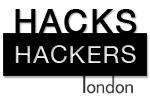"Telling Stories with Data" - the BBC's Scott Byrne-Fraser at London Hacks/Hackers

Last week, as well as going to the Culture Hack debrief event that I blogged about on Monday and Tuesday, I managed to sneak out of some evening user research sessions we were having at Kings Place and scoot across town to catch the second half of the latest Hacks/Hackers meet up. I was just in time to catch Scott Byrne-Fraser of the BBC talking about how their data visualisations and online interactives have developed.
He said that his most important slide was the one that simply stated “Start with a question”. The best data visualisations actually answer questions for the audience, rather than just wowing them with big numbers and pretty charts and maps.
This had been a gradual learning process for the BBC team - and, I think, for the wider industry. Their teen murder map in 2008 had taken a lot of data, and turned it into something the audience could explore. But it was missing two key pieces of information - why each murder occurred, and whether anyone was convicted for it. Without those two pieces of the puzzle, the interactive didn’t tell a story or answer questions.
And the audience noticed.
Underneath the interactive was a link for gathering feedback, and it predominantly consisted of people saying things like “This is lovely and you’ve obviously spent lots of time on it but what does it mean?”
Scott went on to say that it is a lovely idea that you can pile all this data on a plate and hope that the users will play with it and discover stories for themselves, but it just doesn’t happen like that. I was reminded of my colleague Alastair Dant’s previous talk at Hacks/Hackers. At the time I wrote:
“[Alastair] pointed out that you can have wonderful visions of the audience putting on their magic Matrix datagloves and freely exploring reams of data, but without proper guidance and editorial framing, they may well find themselves exploring for a long time and discovering nothing.”
And data visualisation is not necessary for every story, as Scott observed during his Hacks/Hackers talk:
“Sometimes as a designer or developer it is hard to say, you know what, you just need to say 23% here, you don't need a pie-chart.”
Scott put the success of a good data visualisation down to good planning. Doing the last bit, actually building it in Flash, he said, was the easy part. On complex data sets they work closely with information architects to work out the best ways of organising and presenting the data, and they also use sketching as part of the design process. Their team is a mix of visual designers, client-side developers and journalists, and “everybody has a good grasp of Excel”.
Scott argued that the essence of good information design is stripping out the information you don't need, and pointing the user at the key information whilst creating the narrative. It isn’t, he said, really any different from what journalists do when they produce a traditional written story, echoing a point recently made by my colleague Daithí Ó Crualaoich:
“Understanding datajournalism is the same thing as understanding journalism. The stress is in the wrong place when we focus on the data. You can't give a machine data and get journalism out the other end”
Through trial and error the BBC team have found that a very effective format is to have quite simple graphics and animations playing whilst accompanied by a narrative voiceover. Scott said:
“We like to claim this is interactive because you can hit chapters, but actually, you generally just hit play and lean back. Most people don't want to fine tune a chart and play with the variables. Their attitude is ‘You guys get paid to work out what’s important here - just tell me’”
“Hacks/Hackers London: Notes from the talks” brings together notes from 16 talks, including those from Martin Rosenbaum, Stephen Grey, Alastair Dant, Scott Byrne-Fraser and Wendy Grossman. It looks at topics of interest to journalists and programers alike, including freedom of information, processing big data sets to tell stories, social activism hack camps, the future of interactive technologies, and using social media to cover your tracks - or uncover those of somebody else.
“Hacks/Hackers London: Notes from the talks” for Kindle is £1.14.

I am in fact going to just start pointing people who make unfocused maps-from-data-for-no-reason at this, instead of trying to articulate why it annoys me so much.
Finally, after 8 long years, I have blogged something that @handelaar agrees with. My work here is done. ;-)
Plus it's not even in nine pieces :D